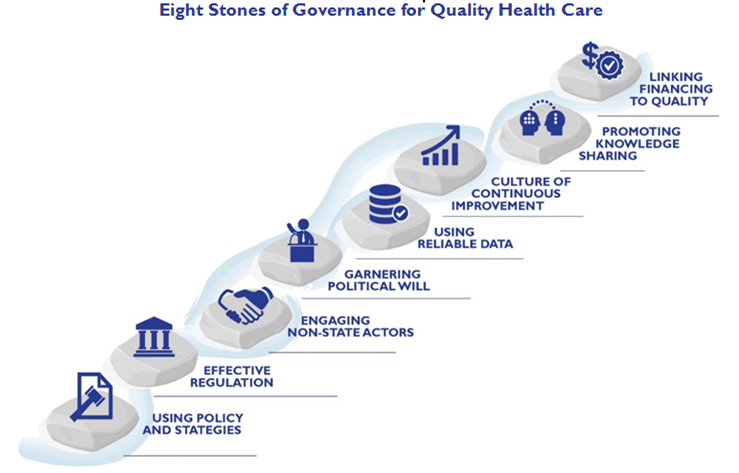Governance to Improve the Quality of Health Services: A Research Agenda
Categories: Announcements, Governance and Leadership
Improving the quality of patient-centered health services is at the heart of delivering on the promise of universal health coverage (UHC) and achieving the Sustainable Development Goals (SDGs). The WHO’s Framework on integrated people-centered health services frames five strategies to achieve quality people-centered care, including creating an enabling environment that strives for quality improvement and safety and strengthening governance and accountability (WHO 2016). To this end, national governments are keen to learn from the experiences of others what is or is not “working” in the way countries have structured their institutional architecture to design, create, promote, oversee, improve, and pay for quality people-centered health service delivery.

In 2015 and 2016, the HFG and the Applying Science to Improve Systems (ASSIST) projects conducted a literature review of 25 country experiences, and qualitative interviews with stakeholders from 18 countries. The projects worked with the JLN to offer countries with a high level of interest in improving governance in health care an opportunity to meet and share learnings in Dar es Salaam, Tanzania, in March 2016. Research findings from the interviews and the literature review showed some correlation between improved outcomes and a few institutional arrangements, roles, and processes aiming to support quality in health care. However, a major finding of the research, echoed by participants at the March 2016 meeting, was that documented understanding of what works in governing quality is limited, and that there is a demand for information and analysis of specific country experiences.
Download


